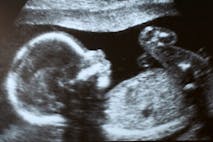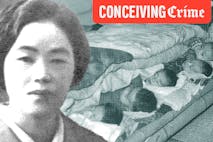
Poll: More UK medical professionals oppose assisted suicide bills than support
Right to Life UK
·
Answering 6 common objections to the idea that the Bible is pro-life
The Bible teaches that children in the womb are as much human beings as born children are. Although billions of Christians around the world are influenced by the Bible to live moral, Christlike lives, many still offer faulty objections to the idea that the Bible is pro-life.

Here are six of the most common objections:
A common objection to the truth that the Bible is pro-life is that in some Biblical stories, God appears to take innocent human lives. God alone is the one who creates, sustains, and resurrects all human life. God is God — He has abilities that human beings do not, and it is not immoral for God to end a human life. It is immoral, however, for a human being to end the life of another, innocent human being. Humans are clearly not God.
Consider how heart surgeons have permission to cut open the chests of children. It’s not immoral for them to do so because they have specific abilities and purposes that other people don’t. A surgeon can cut open a child’s chest for the purpose of healing that child, and then can mend the incision afterward.
Similarly, God is not immoral if He chooses to take life — because He alone can reverse death and resurrect all human beings as well. God alone knows the purpose and number of days for each human life.
Another common objection to the truth that the Bible is pro-life is the story of Abraham and Isaac, in which God commands Abraham to sacrifice his son Isaac on an altar. Ultimately, God stops Abraham, and Isaac is not killed, but many Christians continue to wonder why God commanded such an act that is seemingly in opposition to the concept of being pro-life.
It isn’t. The intention of Abraham’s act was not that Isaac would stay dead, but that he would be raised to life from the altar. Abraham had two clear messages from God that conflicted. The first was that God had promised that through Isaac, Abraham would have countless descendants who would bless all nations. The second was that God commanded Abraham to put Isaac to death on the altar. It’s in thinking through these clashing messages that Abraham, according to the author of Hebrews, “considered that God is able to raise people even from the dead.”
Abraham realized that God’s promise of countless descendants could not come true if Isaac remained dead on the altar. So, God would then have to raise Isaac back to life in order to remain true to His promise. Abraham is challenged with the question, “Do I have faith that God is so true to His promises that He will even reverse death in order to accomplish them?” Abraham did have such faith, which meant that the intent of Abraham’s act was not that Isaac would die and stay dead.
Objectors may argue that Abraham’s action still violated the natural law principle that “it is always wrong to kill an innocent human being.” Consider this situation: Two heart surgeons work as a team on a child’s surgery. The role of the first doctor is to cut the incision in the child’s chest, and the role of the second doctor is to fix the issue with the child’s heart and then mend the incision afterward. In isolation, the action of the first doctor to cut open the child’s chest is deadly to the child. But the first doctor is not acting alone, he’s acting together with the second doctor, who has promised to heal and to mend the child.
So no, Abraham’s actions do not violate the natural law principle that it’s always wrong to kill an innocent human being.
Read further analysis here.
Objection #3: When a pregnant woman is struck
A third objection to the Bible being pro-life is found in Exodus 21:22, which states, “Now if people struggle with each other and strike a pregnant woman so that she gives birth prematurely, but there is no injury, the guilty person shall certainly be fined as the woman’s husband may demand of him, and he shall pay as the judges decide. But if there is any further injury, then you shall appoint as a penalty life for life, eye for eye.”
Abortion supporters claim that “further injury” refers only to an injury to the mother, and claim that the child died from premature birth. The penalty of a fine would therefore place less value on the life of the child versus physical harm to the mother.
This is a misreading of the text.
According to Oxford Academics, the reading refers to both the mother and the child, which is why details about “further injury” are not specified. With this understanding, the injuries to the mother and the child warrant the same payment or punishment for the injuries caused, supporting the pro-life position.
Read further analysis here.
Objection #4: The adultery test
A fourth objection to the Bible being pro-life is the “adultery test” of Numbers 5. It says that if a husband suspects that his wife has committed adultery, he can take her to a priest, who will have her drink bitter water. If she is guilty, the water will “make her abdomen swell and her thigh waste away.”
The pro-abortion argument is that this is an abortion.
Article continues below
Dear Reader,
Have you ever wanted to share the miracle of human development with little ones? Live Action is proud to present the "Baby Olivia" board book, which presents the content of Live Action's "Baby Olivia" fetal development video in a fun, new format. It's perfect for helping little minds understand the complex and beautiful process of human development in the womb.
Receive our brand new Baby Olivia board book when you give a one-time gift of $30 or more (or begin a new monthly gift of $15 or more).
However, the Bible states that if the woman is not guilty, “she will then be free and conceive children” — which makes the safe assumption that the woman in the example is not pregnant. Therefore, the idea that a woman would suffer an induced (forced) abortion if she is guilty is a misinterpretation of the text.
It would not make sense for the punishment to only apply to pregnant women, because even women who are not pregnant could be guilty of adultery and brought before a priest. The punishment would have to affect them too — not just women who happened to be pregnant.
Therefore, the punishment for the guilty persons is physical suffering and infertility — not induced abortion.
Read further analysis here.
A fifth objection regards the killing of other human beings by Israelite armies. Scripture makes it sound as if God commands the Israelite armies to kill innocent people, including noncombatants, women and infants, specifically during the driving out of the Canaanites. The Bible states that God commanded the Israelites to “utterly destroy” the Canaanites.
When specifically speaking of the Canaanites, the Bible context is that the Canaanites were given 400 years’ warning to leave the land and to stop committing horrific and evil acts — such as child sacrifice.
Studies of Ancient Near Eastern conquest accounts reveal that the language of “utter annihilation” has a few possible meanings, one of which is “to ban.” Sometimes the language is used in a hyperbolic sense, similar to how people today would say, “Brazil’s soccer team utterly destroyed USA’s team.”
Though Joshua 10 says that Joshua “utterly destroyed every person . . . [he] left no survivor” in the cities of Hebron and Debir, in Joshua 15, those exact cities are still inhabited. A literal reading of this situation is impossible, and therefore the language of the author must be considered hyperbolic. And in Deuteronomy 7, the Israelites are commanded to drive out the Canaanites and then to utterly destroy them, and then later they are instructed not to intermarry with them or do business deals with them. (You can’t marry or do a business deal with someone you have literally destroyed.) And therefore, “utter annihilation” is likely to have been used either hyperbolically or to have been meant as a complete “driving out” of the Canaanites from the land God promised to the Israelites.
Click here for more, or click here to read an additional perspective.
Another major argument that the Bible is not pro-life focuses on Psalm 137, which states, “How blessed will be the one who seizes and dashes your little ones against the rock.”
It is vital to understand that the writer of this psalm was a victim of the fall of Jerusalem to Babylon — a horrific event in which the city was laid under siege, the temple was burned, thousands of Jews were deported to Babylon, and thousands were killed, including Jewish children who were dashed against the rocks.
The psalmist has been deported to Babylon, and his captors are demanding he sing a song. The psalmist remembers Jerusalem being razed to the ground — and the children who were killed. He sings:
How blessed will be the one who repays you
With the recompense with which you have repaid us.
How blessed will be the one who seizes and dashes your little ones
Against the rock.
The critical subtext of this is the psalmist saying he will not seek to do to Babylon what Babylon did to Jerusalem — namely, kill Babylonian children. The psalmist is expressing his desire for revenge (to do to his enemy what was done to him) but ultimately he hands vengeance over to God. This is why he says, “Blessed be the one,” (emphasis added) that is, the one who is NOT me. He is saying, “I know I can trust God to see that justice is done, and so I will not take revenge into my own hands.”
The Bible recognizes the humanity of babies in the womb and every human being from conception until death. God also commands that no innocent human being, inside the womb or out, be killed at any stage of life — the very core of pro-life principles.
Live Action News is pro-life news and commentary from a pro-life perspective.
Contact editor@liveaction.org for questions, corrections, or if you are seeking permission to reprint any Live Action News content.
Guest Articles: To submit a guest article to Live Action News, email editor@liveaction.org with an attached Word document of 800-1000 words. Please also attach any photos relevant to your submission if applicable. If your submission is accepted for publication, you will be notified within three weeks. Guest articles are not compensated (see our Open License Agreement). Thank you for your interest in Live Action News!

Right to Life UK
·
Politics
Madison Evans
·
Opinion
Nancy Flanders
·
Investigative
Carole Novielli
·
International
Cassy Cooke
·
Analysis
Nancy Flanders
·
Analysis
Newsroom
·
Media
Newsroom
·
Media
Newsroom
·
Activism
Newsroom
·
Activism
Newsroom
·